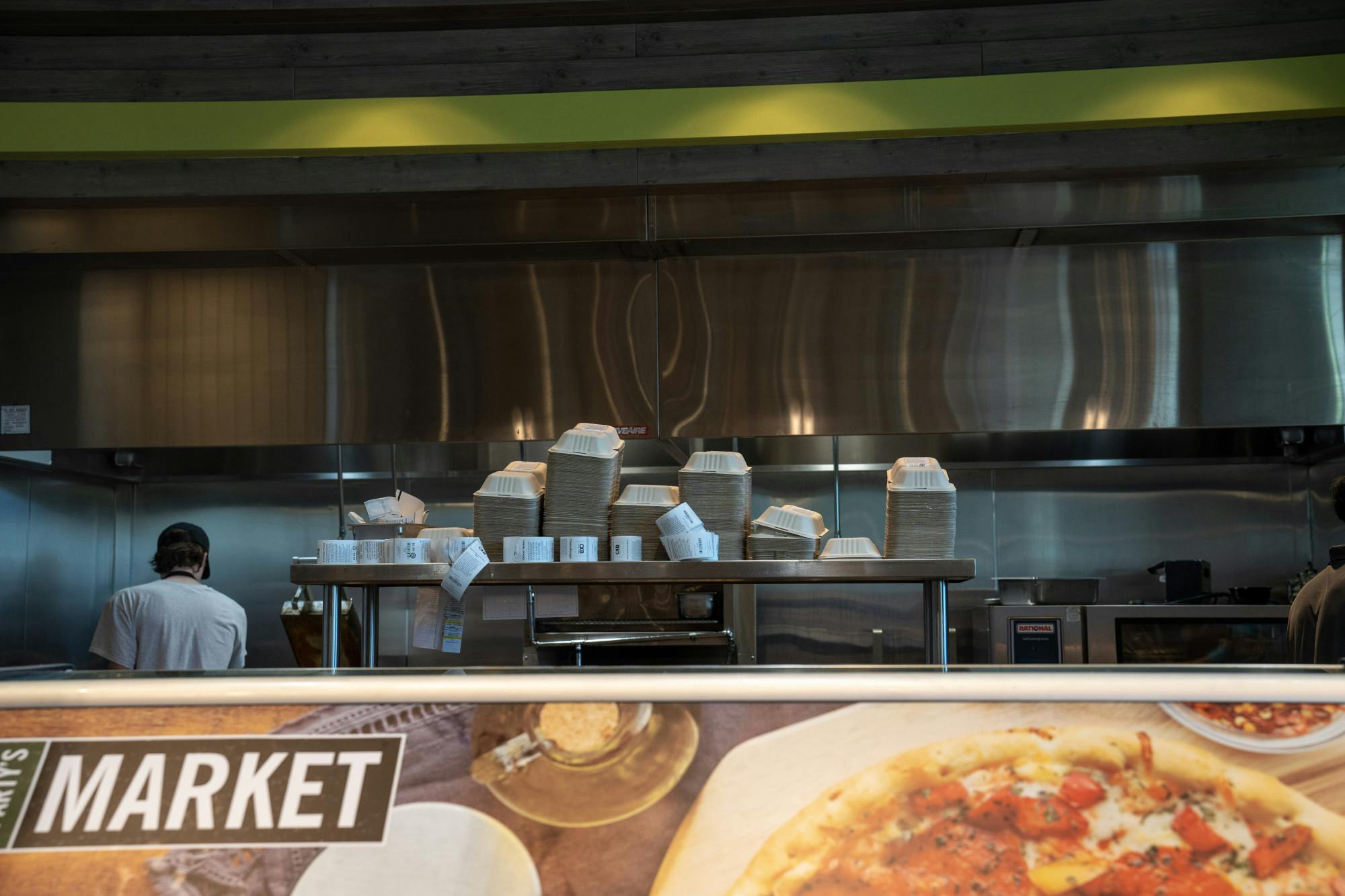The nine dining halls spread across MSU’s campus feed tens of thousands of students every day.
Before the pandemic, the dining halls employed around 1,500 students. This month, however, it’s about 500. This staffing shortage has affected service and led most dining halls to use exclusively disposable plates and cutlery to save on staff working in dish-rooms.
Since Aug. 1, the department has received 984 applications to fill these jobs. According to Student Life and Engagement, or SLE, Chief Communications Officer Kat Cooper, hiring is slowed by a time-consuming, manual HR process and unresponsive applicants.
“It takes three weeks to hire a student team member," Cooper said. "It takes us six weeks to hire an on-call and full-time team members at the university take even longer to hire."
Cooper said that the HR team struggles to compete with faster processes at other employers, as SLE employees review applications manually, while she believes competitors use software to electronically review applicants.
Managers and employees at nearby East Lansing restaurants, including Leo’s Coney Island, No Thai, Buffalo Wild Wings, Barrio and Hopcat said that their applicants can expect about a one week wait between applying and beginning their first shift. All of these restaurants use manual review processes.
Cooper said that regardless of the delay, the manual process yields higher quality results.
“This process takes time. Any time people are the ones doing the work, it takes a little longer," Cooper said. “But, we also like to think it's a thoughtful process and it's an equitable process.”
Further delays have been caused by unresponsive applicants. Cooper believes the vast majority of these students simply aren't seeing the responses to their applications, leading them to believe the dining halls have not reached back out to them to begin the hiring process.
Of the 984 applicants, 351 have been contacted for interviews or background checks but have not responded. Cooper believes the issue is that the HR department emails applicants from addresses she fears students will not recognize.
“We're finding that when we get in contact with students who say they haven't heard back from us, they're checking the wrong email address or they're not looking for an email from an individual,” Cooper said. “Instead, they're looking for an email that's from like 'your dining hall,' or something like that and we don't have that.”
Since they began reviewing the new applications, MSU has hired 379 new employees. As they continue to hire additional student staff, Culinary Services hopes to resolve issues like the disposable plates and cutlery.
Jeffrey Beavers, MSU’s Executive Director of Career Services, believes students can enhance their chances of getting dining hall positions they desire with a few simple steps.
In an email to The State News, Beavers suggested students “create a targeted resume” which aligns their interests and experience with the job they hope to get and lists their volunteer and extracurricular experiences in addition to work experience. He also said students should prepare thoroughly for their interview by identifying their competitive advantage and creating an “elevator pitch” that summarizes their qualifications.
Beavers wrote that students should connect with MSU career services professionals who can review their resume, conduct a practice interview and assist them in finding open jobs.
Editors note: This article was updated on Oct. 4 at 10 a.m. to correctly reflect a recent update in Kat Cooper's position. She was previously stated as the MSU Residential and Hospitality Services spokesperson. Cooper is now the Student Life and Engagement Chief Communications Officer.
A change was also made on Oct. 4 at 10 a.m. to accurately reflect that SLE HR employees review applications, not MSU HR.
Support student media!
Please consider donating to The State News and help fund the future of journalism.
Discussion
Share and discuss “An HR bottleneck leaves dining hall jobs unfilled, despite abundance of applications” on social media.







